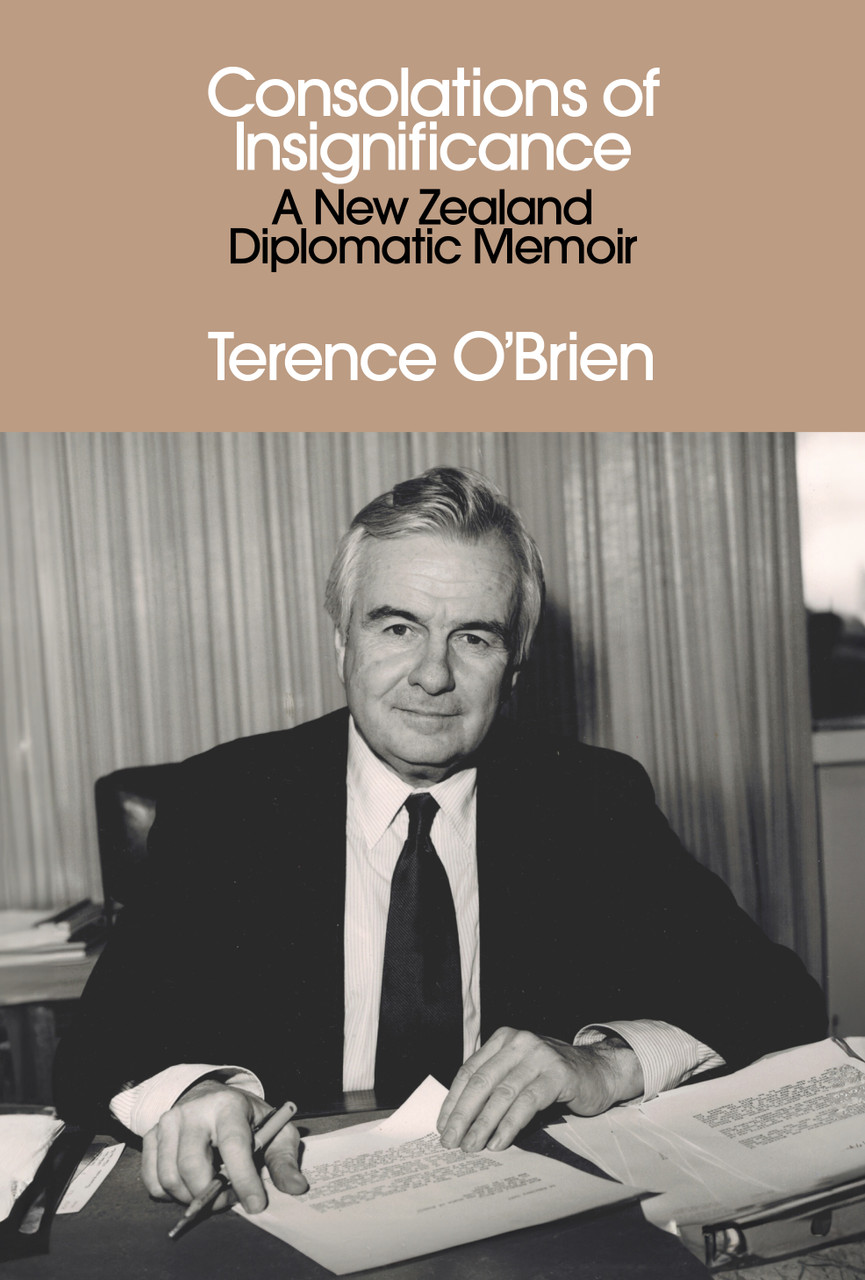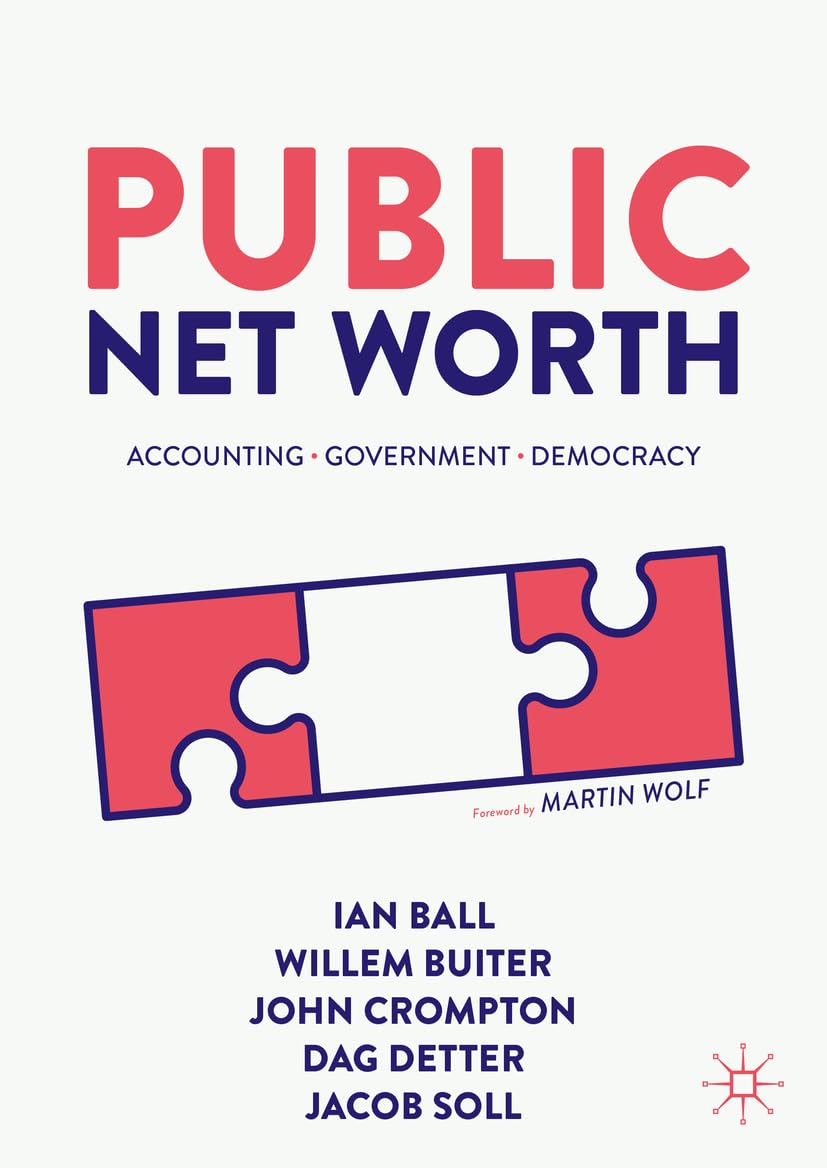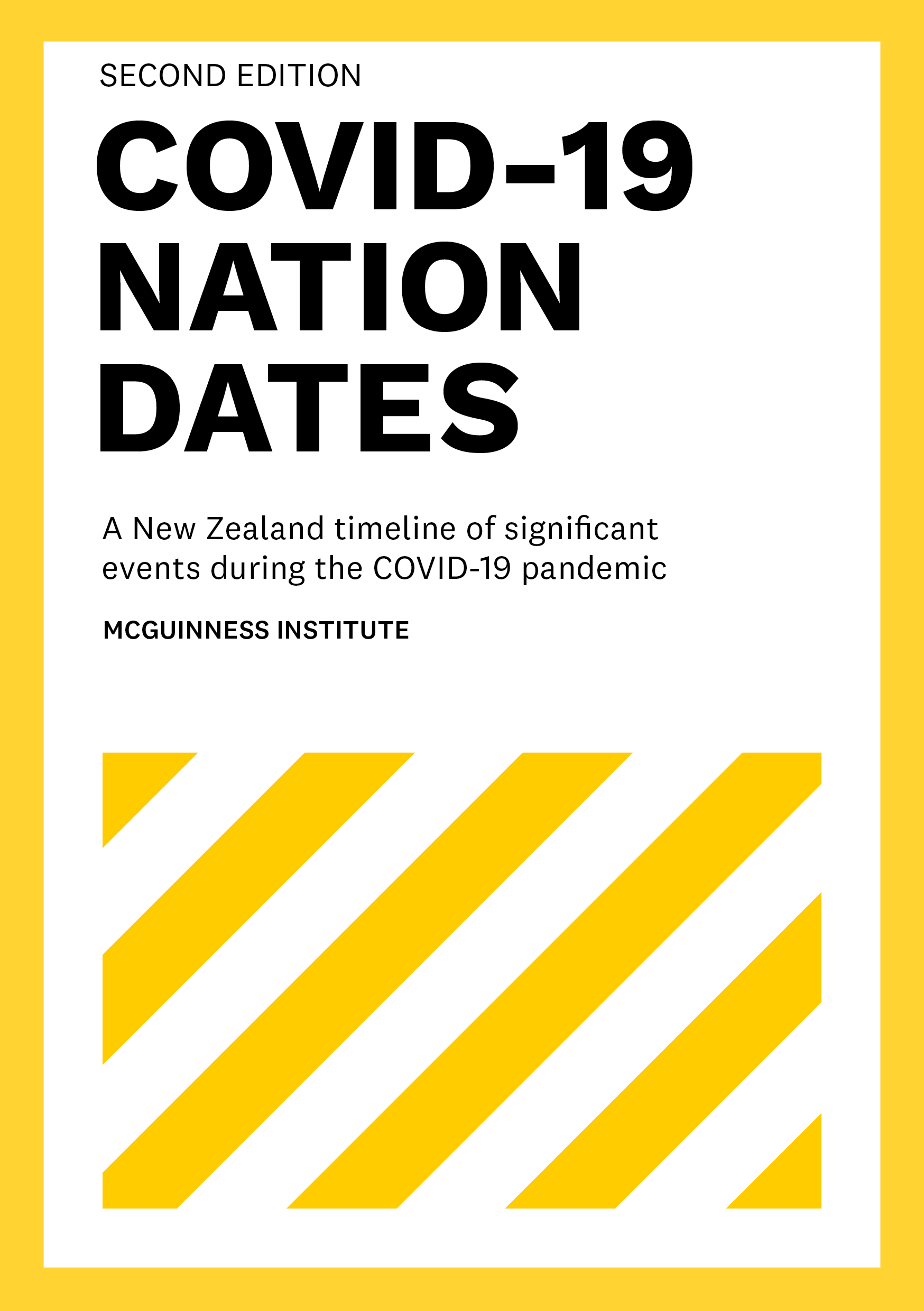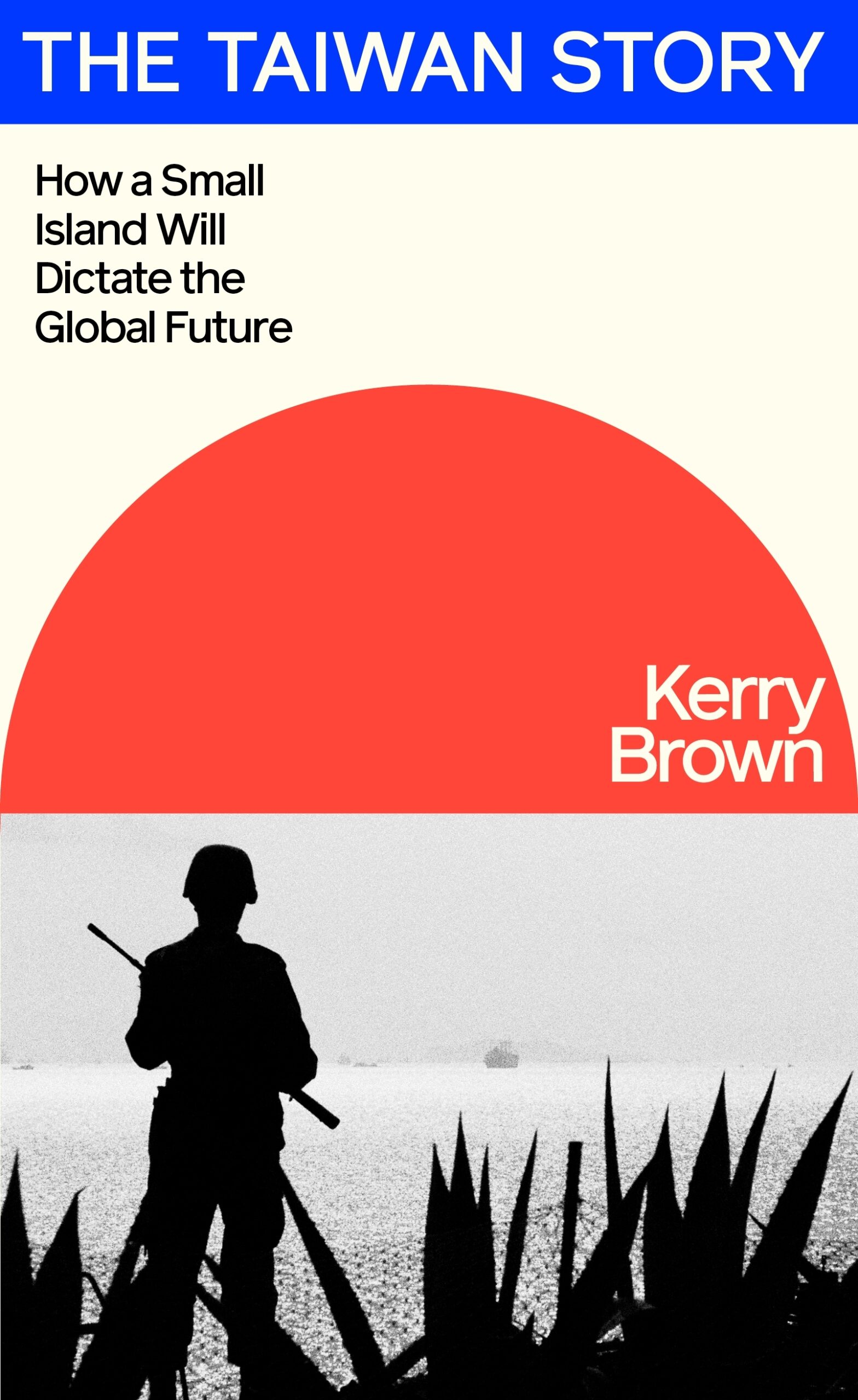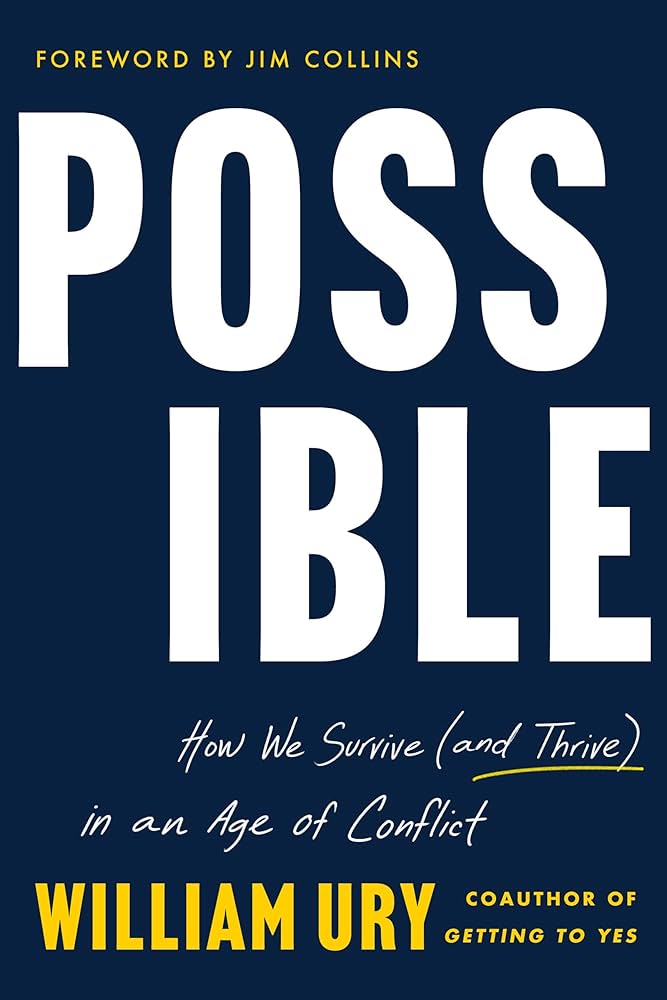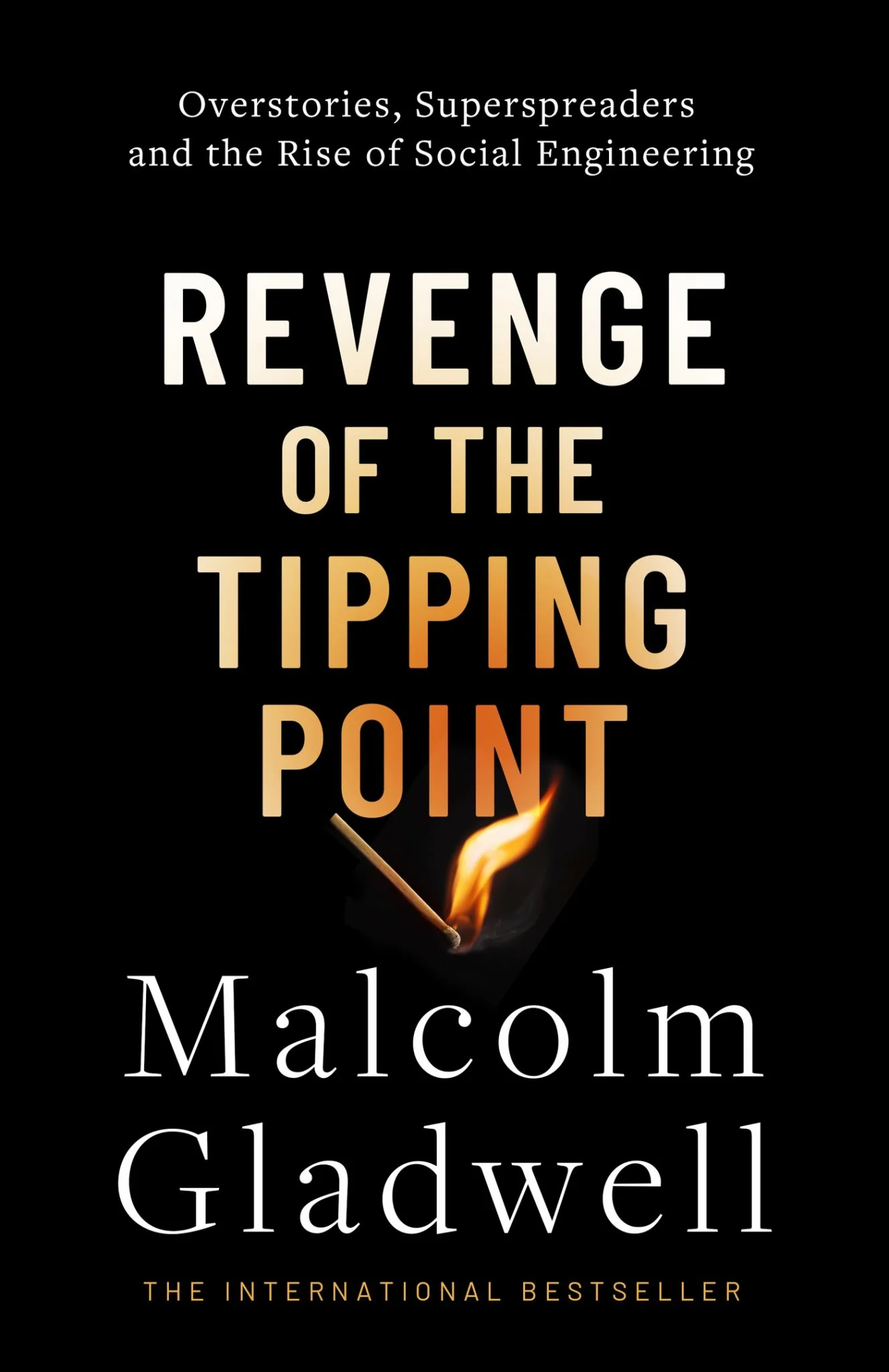
To read is to fly: it is to soar to a point of vantage which gives a view over wide terrains of history, human variety, ideas, shared experience and the fruits of many inquiries.
– A.C. Grayling
Here at the McGuinness Institute, we really love books. Books have the power to bring people together by identifying shared experiences, teaching new skills and explaining different perspectives. When you open a good book, you are opening yourself up to a fresh point of view, allowing you to explore a new world from the comfort of your armchair. Reading provides a calming break from the 24/7 online news cycle, click-bait headlines and phone notifications that are part of modern life. We love books so much we even have our own McGuinness Institute Library, which has been open to the public since 2009.
As part of our appreciation for books, since 2011, the Institute has sent each current Prime Minister a package of books to read over the summer break. To reflect our non-partisan approach, we also send the same package to the leaders of other major political parties. This initiative is inspired by the Australian think tank the Grattan Institute, which sends a similar list to the Australian Prime Minister each year.
We select the books based on specific criteria, including being published in the previous 12 months and written by a range of international and New Zealand authors. Although, the real test is whether the selection provides valuable insights and skills for our political leaders. We aim to present them with books that will help guide them through the challenges and opportunities New Zealand might face in the future.
Our reading list is designed around the skills and knowledge we think our leaders will need in 2025. This selection contains insights and knowledge about foresight, analysis, financial management, diplomacy, reflection, resolution and implementation. For the record, we do not think there will be a nuclear war, but for those interested in foresight, Jacobsen’s book illustrates an interesting and novel way to explore cause-and-effect relationships using ‘a ticking timeline’. We hope you will enjoy!
The 2024/25 Prime Minister’s Summer Reading List:
- Nuclear War: A Scenario by Annie Jacobsen
- Consolations of Insignificance: A New Zealand Diplomatic Memoir by Terence O’Brien
- Public Net Worth by Ian Ball, Willem Buiter, John Crompton, Dag Detter and Jacob Soll
- COVID-19 Nation Dates (second edition) by Wendy McGuinness
- The Taiwan Story: How a Small Island Will Dictate the Global Future by Kerry Brown
- Possible: How We Survive (and Thrive) in an Age of Conflict by William Ury
- Revenge of the Tipping Point by Malcom Gladwell
This year, we celebrated 20 years of the Institute, encouraging us to reflect on how New Zealand (and the world) has changed over this time. Some things have altered our world irreversibly (technology and AI, social media, war, climate change); other things have stayed the same (political divisions, global tensions, environmental concerns, pandemics).
In recent years, different political and ideological beliefs have sparked arguments, fragmented families and resulted in violent conflict. This division has only been exacerbated by the power of artificial intelligence, social media algorithms and the spread of mis- and disinformation, pushing people to consume media that enforces binary viewpoints. We need to build up strong leaders who can bridge these polarised perspectives and bring communities together. If we work together, we will be in a stronger position to face the challenges of the future.
We hope this book selection is useful and provides the recipients with a collection to consider, reflect upon and be inspired by. Being open to possibilities, being prepared, and applying a clear set of values will be key to navigating what the future has in store.
We invite you to make a cuppa, sit in your favourite spot, and get absorbed in a good book.
Happy reading!
Ngā mihi o te wā
Wendy and the Institute team
We believe New Zealand’s future must build on its past and this is why the Institute Library, in all its forms, is so important to us. It now contains over 5000 books and publications (and counting) and is open to the public on Friday, 10am–3pm. To make an appointment, email enquiries@mcguinnessinstitute.org or phone the office on +64 4 499 8888. If you visit, you may be interested in our ‘Year 2040 wall’. It is in its early stages, but it is the start of a collection of memorabilia and artefacts designed to represent the years 1840 and 1940, and to challenge us to think about what success in the year 2040 might look and feel like.

Nuclear War: A Scenario
Author: Annie Jacobsen
Timeless, masterful… A stomach-clenching, multi-perspective, ticking-clock, geopolitical thriller. Jacobsen expertly delivers a madman’s portrait of Armageddon, one made all the more impactful by the thought that it could literally occur at any moment. Almost novel-like in its presentation, Nuclear War: A Scenario represents the equivalent of an existential gut punch, a sickening and necessary reminder of how fragile every 21st century convenience becomes in the face of a blinding flash of light and near-instantaneous shockwave. Exhaustively researched and featuring interviews with professionals who truly understand just how close we continue to creep toward thermonuclear annihilation Nuclear War: A Scenario should be required reading for everyone alive today, especially for the politicians and policymakers who literally hold the precarious fate of our species in their hands.
— Forbes
Annie Jacobsen is an American investigative journalist and writer. She has authored many highly acclaimed books, including the Pulitzer Prize finalist in history The Pentagon’s Brain, and the New York Times bestsellers Area 51 and Operation Paperclip.
Nuclear War: A Scenario explores a single scenario of nuclear attack on America by North Korea, with a timeline showing how this attack quickly escalates into a global nuclear war. The scenario is set in the present day and Jacobsen uses a ticking timeline to show how quickly a nuclear crisis could unfold (a swift 72 minutes, according to this scenario). This book falls under ‘creative non-fiction’, as Jacobsen has used research and interviews to produce a very realistic depiction of a fictional scenario.
Time, and the lack of it, is an important theme. Jacobsen wanted her scenario to demonstrate just how little time – and information – decision-makers and government organisations have to make decisions that could potentially end the world as we know it. The scenario emphasises the importance of electing leaders we trust, because this small group has sole discretion to use weapons that could cause irreversible harm. The theories and technology outlined in this book are complex, and the solutions to such a scenario are not simple. You cannot finish this book without being concerned about the risks of the future.
We chose this book because Jacobsen has successfully used a futures scenario, along with a timeline, to communicate the impact of a nuclear war. This scenarios-based thinking is a great example of a foresight tool, with foresight being a key focus of the Institute’s work in 2024 (and into 2025). Nuclear war is a topic that has monumental consequences for society but is undeveloped in terms of policy and strategy. See Discussion Paper 2022/03 – Nuclear War: Are we prepared? for a refresh of a book published 37 years ago: New Zealand after Nuclear War (August 1987).
Jacobsen’s book made us consider the current trajectory of society and how we can work to protect society from risks such as a nuclear war.
Consolations of Insignificance: A New Zealand Diplomatic Memoir
Author: Terence O’Brien
This insightful book on Terence Christopher O’Brien’s life’s work is one that I recommend to all who want a better understanding of how New Zealand and the world developed their thinking over the past 60 years following the end of World War II.
—Jim Bolger, 25th Prime Minister of New Zealand
Terence O’Brien (1936–2022) was a diplomat with the New Zealand Ministry of Foreign Affairs and Trade for over 40 years. He had an impressive career, including being High Commissioner to the Cook Islands; Ambassador to the United Nations and the European Union; working for a term at the UN in Geneva, including the World Trade Organization; and finally working for the UN in New York, including a term as President of the UN Security Council.
Diplomatic memoirs depict historical events from a personal perspective. In this book, O’Brien shares anecdotes and describes various events during his career as a New Zealand diplomat. While working to improve our international position, O’Brien was involved in some monumental historic events. These include establishing New Zealand’s first embassy in China; securing trade agreements with the United Kingdom after it joined the EEC; dealing with the fallout from New Zealand’s nuclear-free policy; directing New Zealand diplomacy during the Fiji coups; and gaining a seat on the UN Security Council during the turbulent early 1990s.
In Consolations of Insignificance, he observes the importance of diplomatic impartiality, including that ‘New Zealand representatives overseas are often required to advance or defend government policies about which they might retain personal and private doubts’. O’Brien also opens up about how, in a random turn of events, he was unexpectedly relieved of his posting as New Zealand’s ambassador to the UN in 1993. However, the reader never learns why, or who shafted him from the role. O’Brien stays true to his diplomatic discretion.
In this memoir, he demonstrates his support for New Zealand developing our own foreign policy – difficult at a time when diplomatic friends and allies (the United Kingdom, Australia and the United States) had different policies in relation to, for example, New Zealand’s anti-nuclear policy.
An interesting concept O’Brien ties to the title is the idea of New Zealand’s ‘insignificance’ on a world scale, and how this impacts our foreign policy and relationships with the rest of the world. Our isolated geography and small size can be beneficial; however, they mean we must position ourselves with intention so we are heard and make an impact on the world.
O’Brien’s book provides a snapshot of an interesting time in New Zealand politics and will appeal to anyone interested in international and regional relations, security affairs, or New Zealand foreign policy. Any leader of New Zealand needs to consider the impacts of their decisions globally, and this book provides a good backdrop for that.
Learn more about the Terence O’Brien Family Scholarship in International Relations or Strategic Studies here.
This book was selected because the art of diplomacy is not well understood, but is a critical skill for a Prime Minister. New Zealand will need effective diplomats to manage Article 6 of the Paris Agreement (as explained in our Discussion Paper 2024/01 – Risks hiding in plain sight: Does a commitment under the Paris Agreement to purchase offshore carbon credits create a requirement to report that commitment in the financial statements of the New Zealand Government?).
Public Net Worth
Author: Ian Ball, Willem Buiter, John Crompton, Dag Detter and Jacob Soll
This important book … is a call for sensible change. It should be answered.
― Martin Wolf, Chief Economics Commentator, Financial Times
Public Net Worth has a simple premise that offers valuable insights: governments should be obliged to manage public finances in the same basic way as private businesses. To increase transparency and manage funds sustainably, governments need balance sheets that properly reflect their assets and liabilities. As the New Zealand Government is responsible for billions of dollars and controlling the wealth of the country for future generations, it seems irresponsible they are not required to produce the same financial information as any small business.
This book has been written by an impressive team with a wide range of economic expertise, including New Zealander Ian Ball (principal architect of the New Zealand Government’s financial management reforms, initiator of the International Public Sector Accounting Standards and CEO of the International Federation of Accountants).
Peter Drucker is often quoted as saying, ‘you can’t manage what you can’t measure,’ and this is especially true for governments, which are responsible for managing public money and need to measure the impacts of their spending. A lack of clear measurement and recording of net worth results in inefficiency and a lack of accountability, leaving problems to pile up for the future.
This book explains how governments need to track net worth to ensure they have adequate funding for events such as war, climate disasters, and health issues like pandemics. Without quality financial information, today’s leaders cannot ensure they are saving enough for future generations.
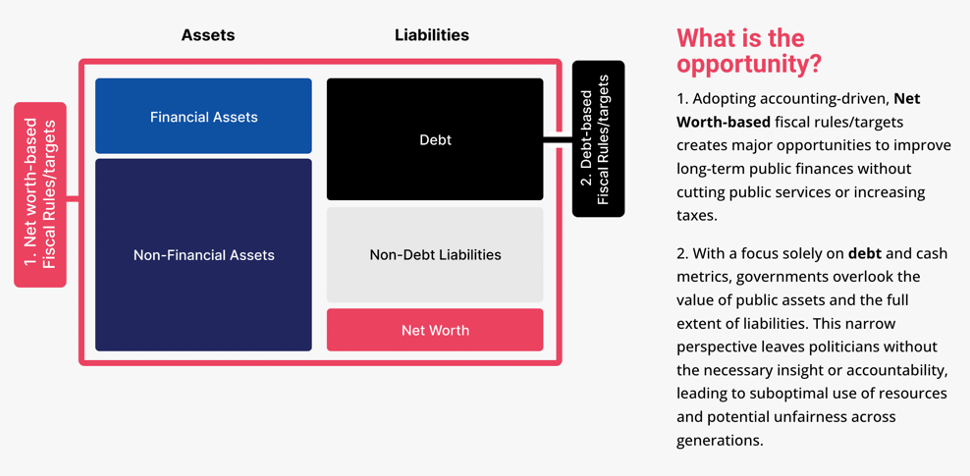
(screenshot from Public Net Worth website)
One reason we selected this book was its alignment with the Institute’s values: it is solutions-focused and non-partisan. The problems identified have a clear solution (recording net worth) that is achievable and would benefit all leaders, no matter their political perspective.
Financial management is a critical skill for any Prime Minister but is one that is often overlooked. Public Net Worth is essential reading for anyone involved in public service, and anyone interested in how the New Zealand Government will manage finances in the future. If the solutions recommended in the book are implemented, not only will the public service be more accountable to the public on how they spend funds but this generation will leave a better foundation for future generations to navigate their own future.
This book links with the Institute’s reporting work on New Zealand’s Nationally Determined Contribution (NDC) liability in the Government’s financial statements (as explained in our Discussion Paper 2024/01 – Risks hiding in plain sight: Does a commitment under the Paris Agreement to purchase offshore carbon credits create a requirement to report that commitment in the financial statements of the New Zealand Government?). The future of tax is also an important element of this conversation. New Zealand needs our taxation system to align with international standards. Our Government revenue must be secure in order to generate sufficient funds to manage increased costs (e.g. health care costs of our aging population and the costs of climate adaptation and meeting our NDC obligations), as well as the potential reduction in our tax take (e.g. from an aging workforce and AI). The scale and complexity of this issue was emphasised by the OECD at a workshop that was held in October on the future of tax.
It is important citizens and businesses can access and understand the net worth of their country. This book also reiterates that New Zealand needs to emerge and build accounting systems that are fit for purpose. Reporting our Government’s net worth will allow politicians, citizens and businesses to understand what resources we have (and need) to prepare for future shocks and crises.
COVID-19 Nation Dates (second edition)
Author: Wendy McGuinness
With the COVID-19 pandemic now in its fourth year, I’ve started to see more and more misleading statements about Aotearoa New Zealand’s early pandemic response. There’s a revisioning of our history going on, particularly by those at home and abroad who believe we shouldn’t have pursued an elimination strategy to deal with what was a new and very dangerous virus. While our response was far from perfect, that strategy saved lives and livelihoods. As time passes, and our own memories fade and become more unreliable, this book stands as an important record of what happened and when.
— Siouxsie Wiles, MNZM, microbiologist and science communicator
The McGuinness Institute regularly updates the Nation Dates series of books in an effort to make New Zealand history accessible and interesting. History provides invaluable context for the future at a time when society is facing major questions about the way forward. The details in this book are a non-partisan record of New Zealand’s response to the pandemic, providing clear information so we can understand what we did well and where we can improve when the next crisis hits.
In COVID-19 Nation Dates, Wendy and the team at the McGuinness Institute have worked hard to represent the breadth of events that occurred during the pandemic in New Zealand. This updated edition includes a total of 700 entries, covering 23 January 2020 to mid- to late 2024. It provides a comprehensive list of COVID-19 events, including entries from the last edition that have been updated in response to feedback, and new entries to reflect the latest available information.
More than just a record of the past, COVID-19 Nation Dates is an invaluable resource for those considering ways to prepare New Zealand for future pandemics (and other large-scale crises). It is essential reading for anyone interested in understanding crisis management, public communications and the power of bringing a community together. New Zealand’s policy response to the pandemic has positives and negatives; however, a key learning was the power of community and the importance of uniting the country to support one another. Recently, it feels like the message to ‘be kind’ has been forgotten – however, it has never been more important.
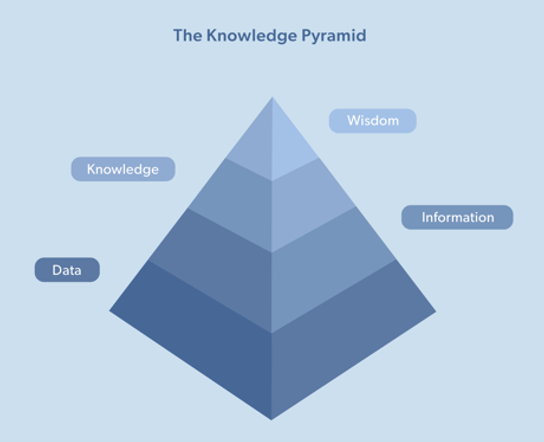
COVID-19 Nation Dates has collected data on the pandemic in order to provide information; data on its own means little, but data with other data tells a story. It is then up to the reader to turn this information into knowledge, and ask questions to turn this into wisdom that can feed into public policy. The critical skill this book promotes is analysis, as Prime Ministers need the skills to analyse data and information, turning it into knowledge and wisdom that result in effective public policy.
The hard copy of this book is now available to purchase in the McGuinness Institute Online Store. In the interests of making history accessible to everyone, we are also working on making a PDF of the book – available online soon.
The Taiwan Story: How a Small Island Will Dictate the Global Future
Author: Kerry Brown
Anyone with a care to avoid a third world war – between China and the US – should read this book. It’s succinct, cogent and thoughtful. It makes the unfashionable, but crucial and, in my view, unarguable case for continuing an approach of ‘strategic ambiguity’ towards Taiwan’s international position. Kerry Brown has the added merit of knowing what he’s talking about. He’s lived and breathed China all his adult life.
– Jack Straw, British Foreign Secretary 2001–06
Kerry Brown is the author of over 20 books on modern China’s politics, society, economics and history. He has had an extensive career studying China and is currently a Professor of Chinese Studies and Director of the Lau China Institute at King’s College London.
The Taiwan Story outlines Taiwan’s significance on the global stage and the international security risks caused by its strained relationship with China. Brown talks the reader through the history and context of this relationship, with issues that began when China was split into winners (Mao’s Communists, who took China’s mainland) and losers (Chiang Kai-shek’s Nationalists, who ran away to Taiwan island) after the violent Chinese civil war in 1949.
Since this split, China and Taiwan have drifted into being separate political and cultural entities. Brown takes the reader through his understanding of Taiwan’s unique culture, history and politics, explaining how the islanders have evolved their own unique identity over time.
As well as explaining this complex history and where Taiwan stands today, Brown analyses what will occur if China tries to step up its presence in Taiwan, outlining possible implications, including war, that would impact the world. As Brown states, ‘in a world where military figures in the US, Asia and elsewhere are talking of 2027 being the moment when something might happen, I hope my book contributes a little to trying to push that date back as far in the future as possible.… Let’s hope we will never see a time when they carry on to the point where they escalate into a war. That would be a tragedy for Taiwan, for China, and for the world. It must never happen, and my book tries to explain as clearly as it can why that is.’
The Taiwan Story was chosen because it highlights the importance of understanding world affairs and where tensions lie globally. In New Zealand, our isolation and small size mean we often do not engage with international affairs; however, they have the power to impact all of us. We need to be aware of what is happening in the world. Understanding the history behind international tension is critical for any leader or policymaker to position New Zealand wisely on the international stage. This book helps demonstrate the critical skills of foresight and analysis, which are essential for the Prime Minister to learn.
Possible: How We Survive (and Thrive) in an Age of Conflict
Author: William Ury
After reading Possible, I understood much better why William Ury’s advice was so useful in my negotiations and why we managed to make possible what everybody thought was impossible. This book is a must for anyone who wants to learn about something so fundamental in life: the art of negotiating and finding solutions.
– Juan Manuel Santos, former president of Colombia and Nobel Peace Laureate
You just need to turn on the news to see conflict is increasing in almost every aspect of society – at home, at work, and internationally. Instead of putting our energy into disagreeing with each other, in this book, William Ury shows how we can work together to find solutions. Ury has impressive credentials, including as co-founder of Harvard’s Program on Negotiation, where he currently directs the Global Negotiation Initiative. He has almost 50 years of experience in global conflict resolution, and is also co-author of the negotiation bestseller Getting to Yes.
Starting relatively lightly, this book gathers momentum. The book is divided into three parts, what he calls the three victories on the path to the possible. They are (1) go to the balcony, (2) build a golden bridge and/or (3) engage the third side. Ury’s insights have already been integrated into our 2025 work programme, so watch this space.
Possible argues conflict is natural and we need it to help us grow, change and evolve. However, we must improve our approach to conflict, focusing on future solutions rather than rehashing issues from the past. Conflict needs to be managed effectively to help us move to a better future.
This book will help the reader learn how to transform conflict into harmony, creatively and constructively. Benefits can come from our differences, and we need to manage diverse mindsets by creating an environment where people can openly share their ideas and perspectives.
One of Ury’s concepts we found especially pertinent for a Prime Minister is the idea of ‘hosting’. This is the belief that every dispute, no matter how polarising, exists within a shared social context. Using this shared social context helps develop community, emphasising commonalities between people even when they share different views. Hosting is a powerful tool in resolving conflict and an essential skill for anyone, especially a Prime Minister.
Resolution is also a critical skill for a Prime Minister, and Possible describes it well. Every leader (indeed every person) will face conflict in their lives. Learning how to resolve it calmly and creatively benefits us in all aspects of life. This book provides clear recommendations on how to work with conflict, embrace the process and be able to stand from a balcony and see the big picture and the long view.
Revenge of the Tipping Point
Author: Malcom Gladwell
The long-awaited follow-up to The Tipping Point, Malcolm Gladwell’s groundbreaking 2000 debut, explores the watershed moments that define this new age of societal upheaval … with curiosity and humor.
― Shannon Carlin, TIME magazine
Malcolm Gladwell is the author of seven New York Times bestsellers, including The Tipping Point, Blink, Outliers, What the Dog Saw, David and Goliath, Talking to Strangers and The Bomber Mafia. He is also the co-founder of Pushkin Industries, an audio-content company that produces Revisionist History, among other podcasts and audiobooks.
Twenty-five years after the publication of his revolutionary first book, Gladwell is back with a new volume that examines the original lessons of The Tipping Point in a fresh light, whilst retaining his charm as a storyteller. Revenge of the Tipping Point returns to the topic of social epidemics and tipping points, however, this time Gladwell aims to explore and understand the dark side of contagious phenomena.
The book walks the reader through a variety of interesting examples, breaking each chapter into multiple anecdotes and connecting them with extensive data. Gladwell recognises there are many forms of epidemics. In addition to health epidemics, he discusses the opioid epidemic, youth suicide and robberies. He takes the reader through the internal workings of social contagions and understanding why small-area variations are important. He provides ideas on how to be aware of those contagions and how to identify, explore and engage with them.
Revenge of the Tipping Point illustrates the power of reflection and accountability. Gladwell has revisited his thinking 25 years later and, in doing so, demonstrates the importance of examining our own past work and actions with humility. Waiting 25 years has provided time to reflect on what has changed since he wrote The Tipping Point. ‘You’ve got to keep moving, because the world moves around you and you learn more. You can’t just stand by something you wrote in 1999,’ Gladwell said to the Guardian about his decision to admit some errors in the original book. ‘Maybe it would be a good idea for anyone who writes a book that tries to make sense of the world to be forced every 25 years to go back and revisit the original thesis.’
Another example of this ownership and vulnerability was Gladwell’s TED talk analysing an error he made in the first edition. The original book discussed why crime in the 1990s fell in New York City, and this analysis contributed to the rise of the infamous ‘stop and frisk’ policing policy in New York. Reflecting on this 25 years later, Gladwell simply said, I was wrong. In doing so, he demonstrates the strength, humility and leadership that every leader needs.
Gladwell’s book reminds us of the importance of reflection which requires us to remove our own self-importance and admit we all make mistakes. It is a powerful skill that is often undervalued.
Secondly, the book reminds us that timeliness matters. Leaders need to create a culture that ensures people can safely share mistakes in a timely manner. In our fast-paced world, being surrounded by people that share timely information, in whatever form, is critical. We need to be accountable and transparent so we can learn from the past and engage with the future.
This book is recommended reading for the Prime Minister because it helps develop the critical skill of reflection. Good leadership includes having the vulnerability to admit when we could have done better.
Thank you for reading
Together, we hope all seven of our selected books inspire our Prime Minister – and other leaders – to think long term. We need leaders who are willing to develop their critical skills, including foresight, analysis, financial management, diplomacy, reflection, resolution and implementation.
The books selected this year offer a variety of viewpoints and styles, and each offers a different critical skill for leadership in 2025 and beyond. People will always disagree. However, by listening to (and reading) other people’s thoughts, we can understand and be compassionate towards those whose views differ from our own.
We hope this list inspires people to open up conversations with friends and whānau on what they want for the future of New Zealand. Together we can build our skills and work hard to build a better future for our mokopuna.
Happy reading and have a wonderful summer break!


